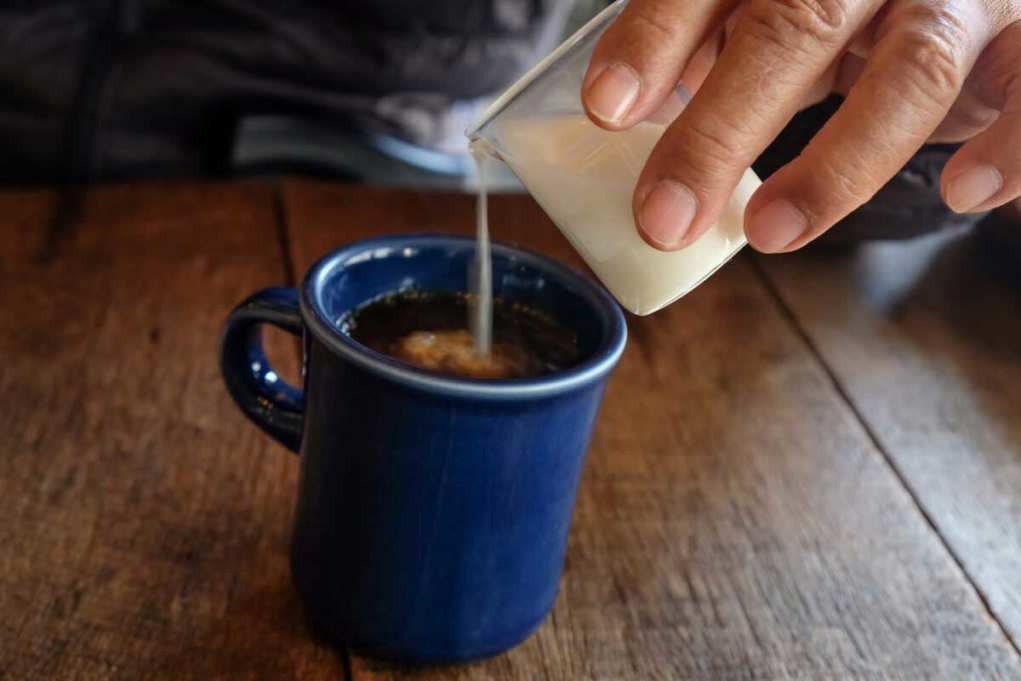
Could coffee do more than just stimulate alertness and stress out the adrenals? What if there was more going on to this ritualistic beverage consumed by billions around the world than just caffeine addiction? What if it was medicine for both the body and soul?
That coffee possesses ‘drug-like’ properties, we know quite well. Some of us, in fact, revel in its addictive properties, as it comes with a certain — albeit a tad bit pathological — industriousness. After all, is there anyone more disciplined/obsessed than a coffee drinker — at least, that is, when it comes to acquiring and drinking coffee? You can set your clocks with exactitude to the performance of their daily coffee-associated machinations, to the point where some coffee makers already have built-in clocks, so as not to delay or miss any opportunity for its owner to imbibe. The type of sober religiosity required to turn drinking a beverage into a ritual is known only by a few Zen tea drinkers and quite possibly billions of habitual coffee drinkers.
It is inhumane, in my opinion, to force people who have a genuine medical need for coffee to wait in line behind people who apparently view it as some kind of recreational activity.
— David Barry
Let us also not forget that one of the first documented uses of coffee over 500 years ago was in the Sufi monasteries of Yemen where coffee was known as qahhwat al-bun, or, the ‘wine of the bean,’ the phrase which provided the etymological origin of the word coffee. Once lauded as a “miracle drug” and used as a sacrament in late-night rituals to invoke the sensation of God within revelers, still today, coffee drinkers are known to cast themselves into bouts of coffee-drinking induced reverie and enthusiasm (literally: en “in” + theos “god” or “god-filled”) by drinking this strangely intoxicating, and yet somehow still sobering concoction.
It is interesting that even addictions can be viewed as a form of ritual — albeit degenerated ones performed semi- or subconsciously. But that cup of Joe gets many of us up in the morning to perform our secular duties, which says a lot considering what many of us are forced or coerced to do for a living.
While many attribute coffee’s vise-like holds on their physiology to its caffeine content, there is much more going on than simply a fixation on a ‘stimulant.’ It has been known for over a quarter of a century that coffee contains a compound known as cafestrol with significant opiate-like properties and which is found within both caffeinated and decaffeinated coffee forms. The ‘narcotic’ properties of coffee, therefore, are no doubt due to a complex interplay between a wide range of compounds — not just a stimulant, but an opioid agonist as well.
Coffee is also a ‘brain-booster’ and contains a compound called trigonelline which in vitro research both stimulates the release of dopamine (not unlike cocaine), and stimulates neurite outgrowth, which involves the extension of dendrites and axons in neurons and which may compensate and rescue damaged neuronal networks in the aging brain.
One of history’s greatest nutrition philosophers, Rudolf Hauschka, described coffee’s action on our body-mind as follows:
Coffee makes us more aware of our bodily structure. And since this structure is so wise and logical, our thoughts become logical in their awareness of it. Coffee thus helps thinking to find a firm foundation. The connection between bodily being and thinking, keeps calling itself to our attention. Coffee has the same effect on digestion that thought has on our upper man, i.e., a properly ordered metabolism goes hand in hand with orderly thinking. Both are founded on a properly ordered physical structure.
— Rudolf Hauschka, Nutrition: A Holistic Approach
Coffee is also one of the only sources of “bitters” remaining in the sweet-fixated Western diet, which sadly comes with a certificate of guarantee that the bearer will likely develop type 2 diabetes, heart disease, or receive a cancer diagnosis at some point in their life. Could the extreme bitterness of coffee be the reason why it has been repeatedly shown to reduce type 2 diabetes risk, as it is one of the only ways we can balance out the highly inappropriate excesses of carbohydrates in our modern dietary configuration?
We don’t normally think of grains as sweet, but they are on the glycemic index. Puffed rice, for instance, can make the blood sweeter than white sugar which is why ‘complex’ carbs are known as “crouching diabetes, hidden sugar.” Coffee contains a wide range of blood-glucose and insulin-sensitizing compounds, making it an ideal complement to a carbohydrate-deranged diet.
Coffee also awakens and stimulates the Qi, as it is known in the Chinese medical tradition. This was discussed in an article entitled “Similarity between the effects of coffee and qi stimulating events“. While raising Qi through exercise and energy work is the ideal situation, coffee provides a shortcut which is the modus operandi in the modern world: instant gratification in exchange for (energy) indebtedness.
When used responsibly,* however, coffee may be a great boon to health. There are, in fact, over 100 potential health applications of coffee as documented on our coffee research database node. We have also identified 33 distinct ‘pharmacological actions’ coffee may activate to produce positive health results. Just make sure it’s organic and prepared with clean, toxicant-free water.
Republished from GreenMedInfo.com
*Responsibly could be defined as using it as a medicine, occasionally, versus every day, several times a day. Good luck with that!
Important Notice: This article was originally published at GreenMedInfo.com by Sayer Ji where all credits are due.
Disclaimer
The watching, interacting, and participation of any kind with anything on this page does not constitute or initiate a doctor-patient relationship with Dr. Farrah™. None of the statements here have been evaluated by the Food and Drug Administration (FDA). The products of Dr. Farrah™ are not intended to diagnose, treat, cure, or prevent any disease. The information being provided should only be considered for education and entertainment purposes only. If you feel that anything you see or hear may be of value to you on this page or on any other medium of any kind associated with, showing, or quoting anything relating to Dr. Farrah™ in any way at any time, you are encouraged to and agree to consult with a licensed healthcare professional in your area to discuss it. If you feel that you’re having a healthcare emergency, seek medical attention immediately. The views expressed here are simply either the views and opinions of Dr. Farrah™ or others appearing and are protected under the first amendment.
Dr. Farrah™ is a highly experienced Licensed Medical Doctor certified in evidence-based clinical nutrition, not some enthusiast, formulator, or medium promoting the wild and unrestrained use of nutrition products for health issues without clinical experience and scientific evidence of therapeutic benefit. Dr. Farrah™ has personally and keenly studied everything she recommends, and more importantly, she’s closely observed the reactions and results in a clinical setting countless times over the course of her career involving the treatment of over 150,000 patients.
Dr. Farrah™ promotes evidence-based natural approaches to health, which means integrating her individual scientific and clinical expertise with the best available external clinical evidence from systematic research. By individual clinical expertise, I refer to the proficiency and judgment that individual clinicians acquire through clinical experience and clinical practice.
Dr. Farrah™ does not make any representation or warranties with respect to the accuracy, applicability, fitness, or completeness of any multimedia content provided. Dr. Farrah™ does not warrant the performance, effectiveness, or applicability of any sites listed, linked, or referenced to, in, or by any multimedia content.
To be clear, the multimedia content is not intended to be a substitute for professional medical advice, diagnosis, or treatment. Always seek the advice of your physician or other qualified health providers with any questions you may have regarding a medical condition. Never disregard professional medical advice or delay in seeking it because of something you have read or seen in any website, video, image, or media of any kind. Dr. Farrah™ hereby disclaims any and all liability to any party for any direct, indirect, implied, punitive, special, incidental, or other consequential damages arising directly or indirectly from any use of the content, which is provided as is, and without warranties.







